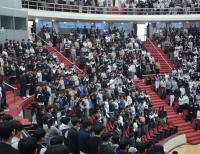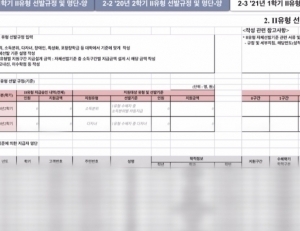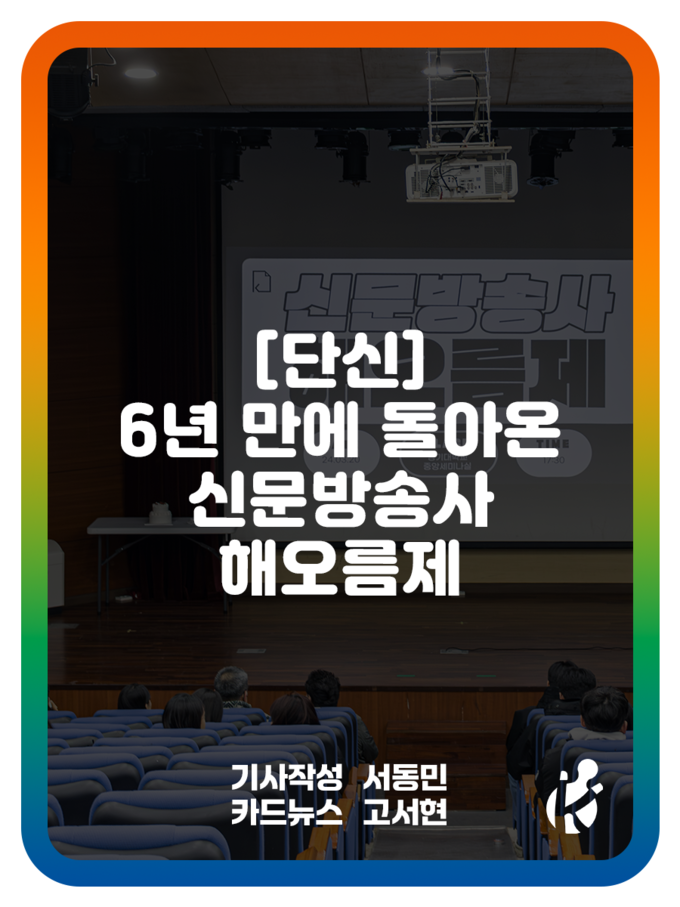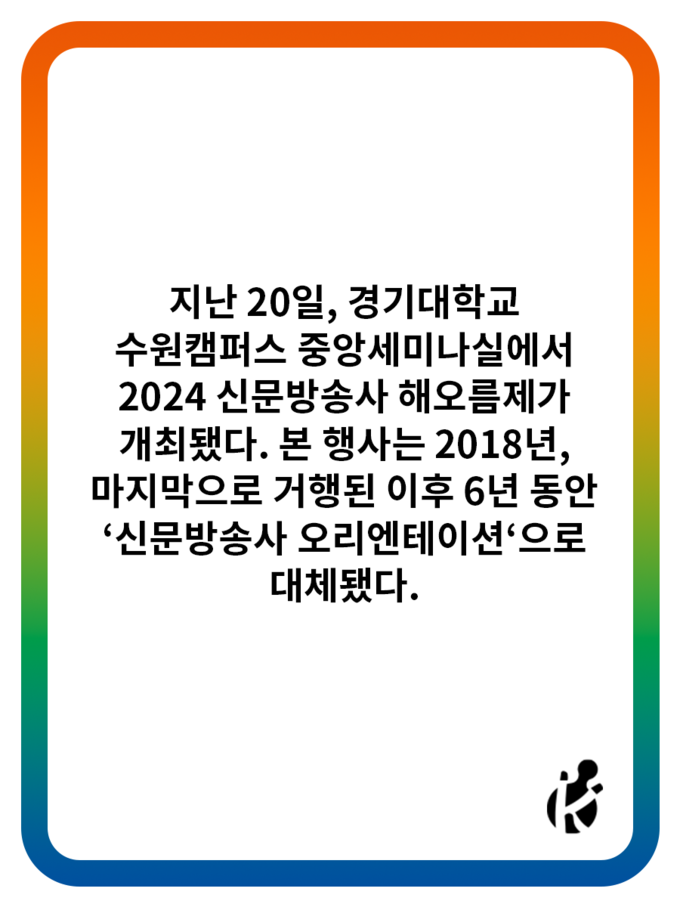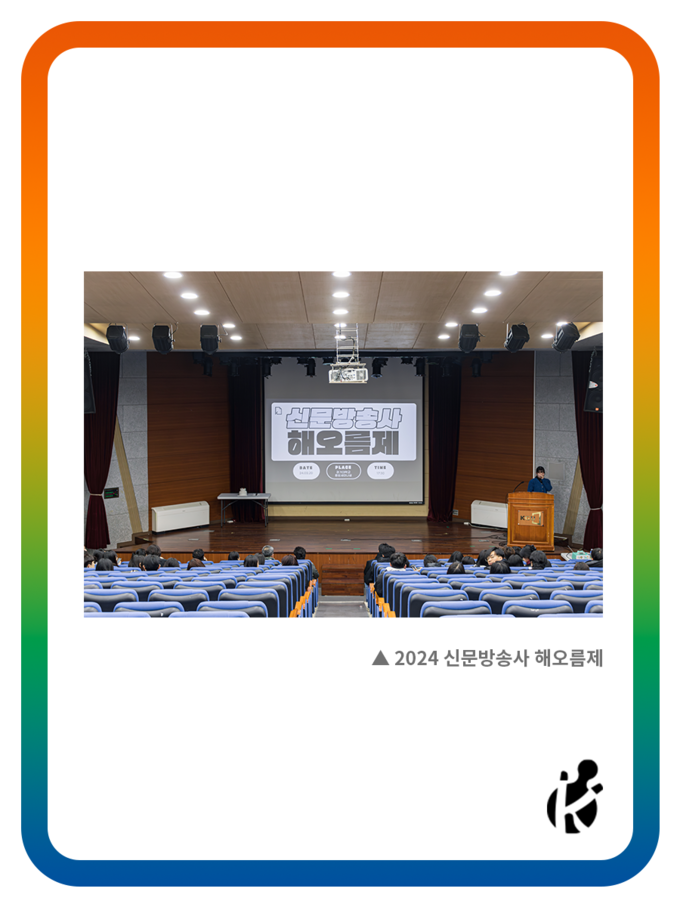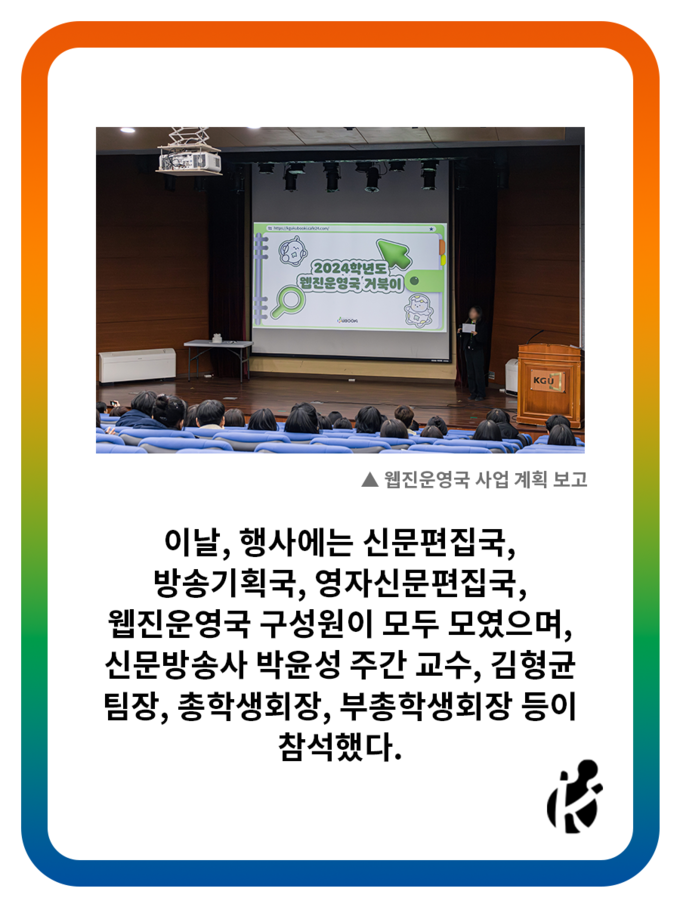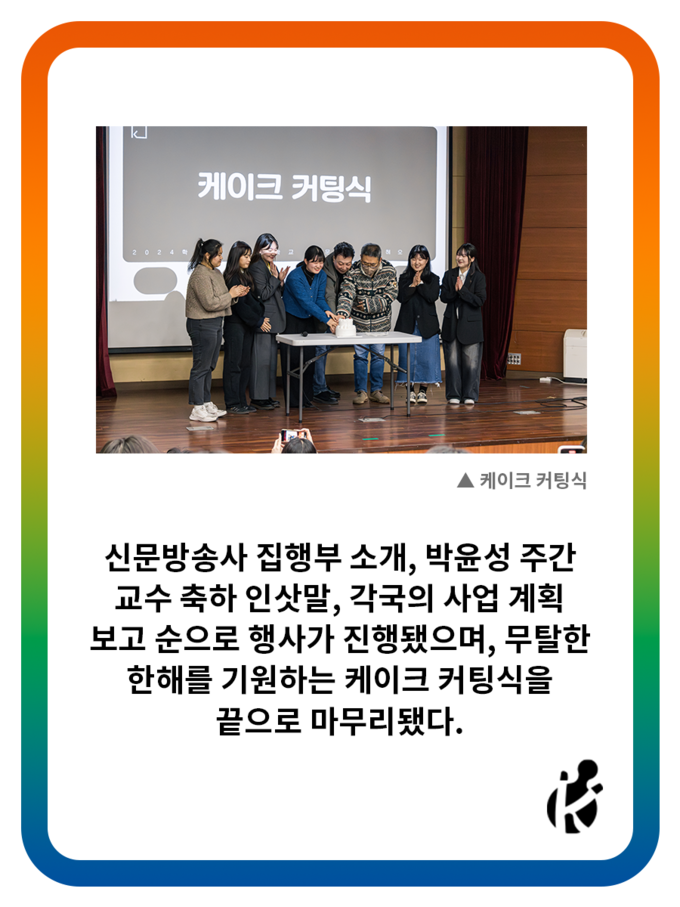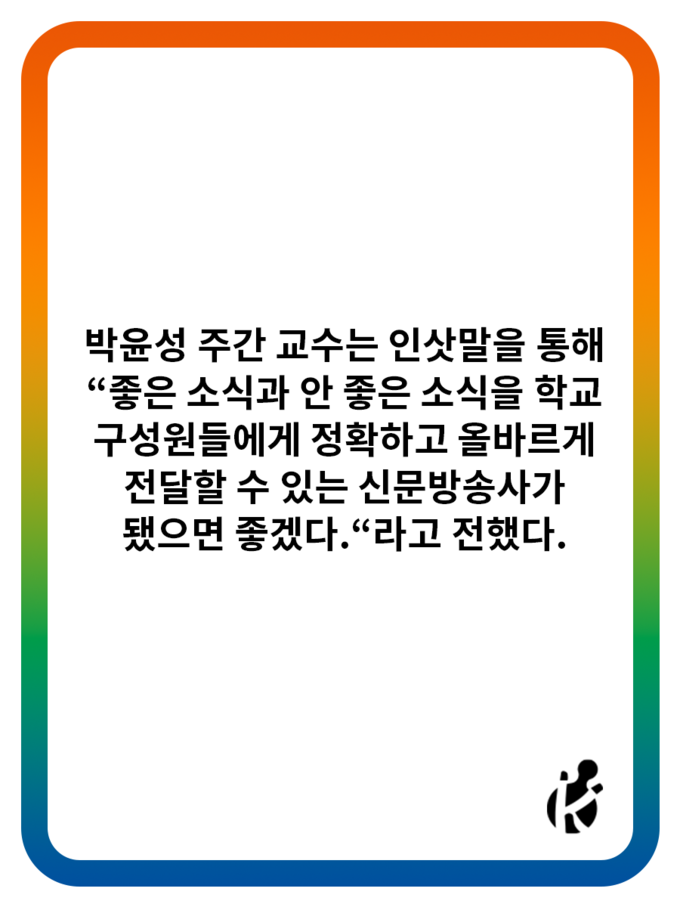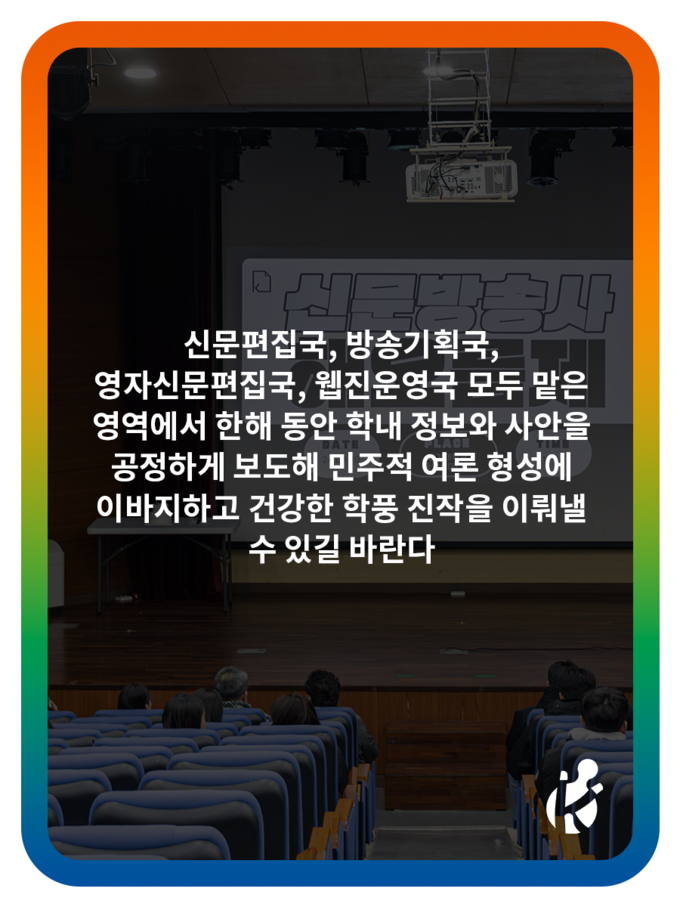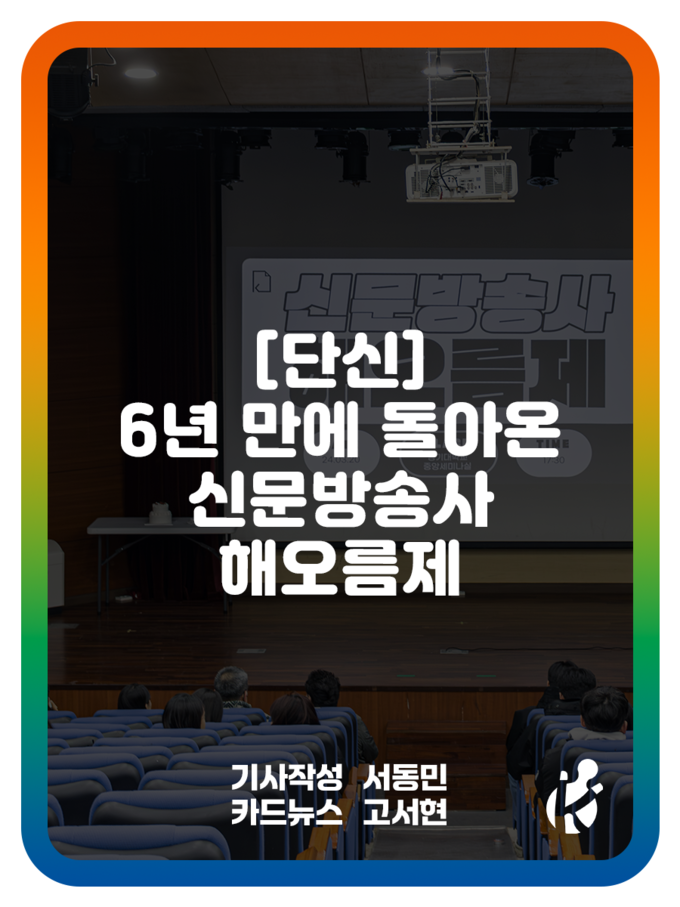Recently, tip boxes have begun to be placed in popular cafes and restaurants in Seoul. Tipping, a type of extra service payment that originated in the West, has been rapidly appearing in Korean restaurants and cafes and there is a lot of debate among consumers. In fact, there is enormous criticism of restaurants, cafes, and bars that implement tipping culture. On the other hand, some feel that giving a moderate tip will increase the quality of services from the employee. Pharos would like to interview Kyonggi University students and find out what they really think about the tipping culture that is taking root in Korea.
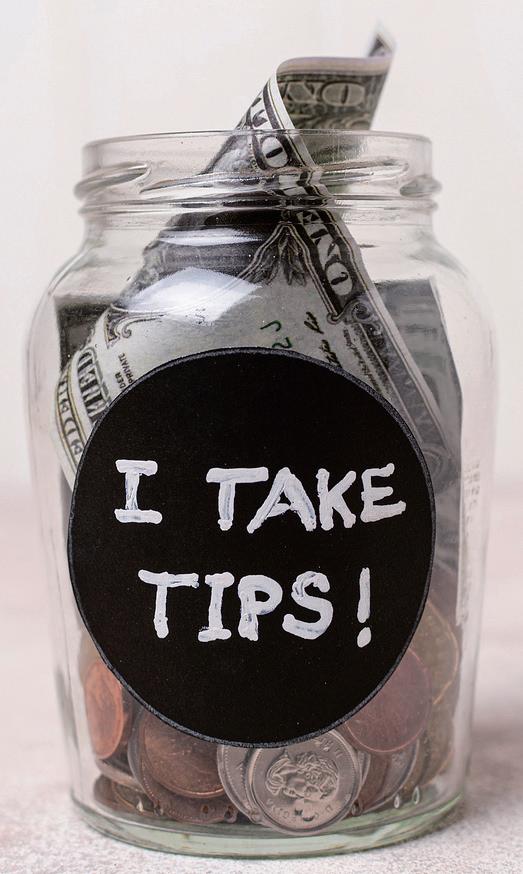
Tipping culture originated in England in the 16th century. In aristocratic societies, it was common to pay a small sum of money to the host’s servant when participating in a party or meeting. As this culture spread throughout Europe, it became a form of manners. Later, in the 1850s, the wealthy in the US also began to pay their employees a small fee, and this became a part of the tipping culture in the US. At this time, cafes and pubs where there were no waiters would set up plates with the phrase “To Insure Promptitude” for customers to leave a tip. This was shortened to TIP. In the US, where tipping culture is the most widespread, it’s common to pay 15-20% of the price of the meal as a tip. The criteria for tipping are determined by a number of factors, such as the quality of service, the kindness of the service, the speed, etc. In the US, tipping is effectively required in some service sectors.
Recently, Korea has also begun to introduce tipping culture, which had never existed before. In Korea, the number of restaurants asking for tips is increasing, causing a debate among customers. There is a conflict between the opinion that it’s okay to give a tip if you have received satisfactory service, and the opinion that it’s uncomfortable to ask for a tip because of the high price. There are certainly advantages to tipping culture. Employees work harder because they receive tips based on their level of service, which increases the quality of service consumers receive. Recently, however, tips are sometimes being prepaid before providing service, and its meaning has faded. In addition, excessive tipping is used to cover the insufficient wages of employees. As a real example, at one N bakery, you have to pay a $1 tip for a $3 package of croissants. This is because in the process of paying using a tablet, you have no choice but to press the tip button in order to make a payment. Tipping, which was around 15~20% before the pandemic, has now risen up to 30%. Consumers are experiencing a double whammy of high inflation and higher tips. Even the term "tipflation" has begun to appear.
As such, there is a debate about tipping culture not only in Korea but also in the United States, where the custom of tipping was established a long time ago. Therefore, Pharos would like to interview Kyonggi University students about what they think about the recent hot issue of tipping culture.
Interview
1-1. Are you familiar with tipping culture? YES/NO
English literature 23 RYU: No.
Economics 21 SEO: Yes.
1-2. Yes/No Answers: Please describe tipping culture so far as you understand it.
English literature 23 RYU: It originated in the US and I understand that it involves giving money to service providers as a thanks. In Korea, I have also seen tipping culture introduced in KAKAO taxis and cafes.
Economics 21 SEO: I think tipping is an additional price to pay for proper service in a place where a service is provided, such as a store or restaurant. We know that tipping culture is usually most common in hotels and restaurants.
2. Have you ever received or given a tip in Korea?
English literature 23 RYU: No.
Economics 21 SEO: When I worked in a restaurant, I received tips from customers.
3-1. Recently, tipping culture has started to grow in Korea. What do you think about that?
English literature 23 RYU: I am against it.
Economics 21 SEO: I am in support of it.
3-2. Why do you feel that way?
English literature 23 RYU: The first reason is that there is a lack of need to introduce a tipping culture in our country. In the US, where people tip, the minimum hourly wage is low,so tips subsidize the wages. Secondly, it can intensify the power trips of patrons. Even now, some patrons pull a power trip over service providers. If tipping is introduced, I think consumers who are dissatisfied with this new trend will be more likely to lash out at service providers. Conversely, if it is taken for granted that consumers will tip service providers, lower- income consumers will oppose tipping culture because it will be burdensome to pay for services.
Economics 21 SEO: I think that a proper tipping culture will help improve service. In today's society, which is being replaced by kiosks and artificial intelligence, I feel that the service culture is declining. Therefore, I think tipping culture provides positive synergy. Of course, I don't think tips should be given without proper service.
4. Do you think restaurants or shops in Korea offer good enough service to warrant a tip? If not, why?
English literature 23 RYU: The service is good enough to deserve a tip. In the case of Germany, it takes several weeks for a package to be delivered. There are also cases where it was not sent to the delivery address you entered, but was delivered elsewhere. On the other hand, in Korea, we enjoy delivery service where parcels can be delivered within a day if it is short, so I think we should tip when it comes to food and parcel delivery.
Economics 21 SEO: As I said above, I don't think workers should ask for tips if they don't provide proper service. I feel that the services that are appropriate for the tipping culture are not provided in Korea.
5. If you had to tip an employee, what percentage of the purchase price do you think would be appropriate?
English literature 23 RYU: If the minimum hourly wage is eliminated, 15% of the purchase price is appropriate.
Economics 21 SEO: I think it should be based on the service, not the purchase price. If excellent service is provided, I think about 10% of the purchase price is appropriate.
Students who oppose tipping culture say that the necessity is low because a relatively higher minimum wage exists in Korea than in most of the US. In addition, consumers who have a hostility to tipping culture may abuse their power, and it may have the unintended effect of service workers not providing high quality services. On the otherhand, students who approve of tipping culture feel that the quality of the service has been remarkably decreasing in modern society with the advent of AI and kiosks, and they think the tipping culture introduces a positive synergy between people. As you can see, the pros and cons about the tipping culture are far apart. What are your thoughts about tipping culture?
79th Reporter • CHO SEO YUN • jeoyum@gmail.com
80th Reporter • CHOI JUN HONG • chloi0058@naver.com
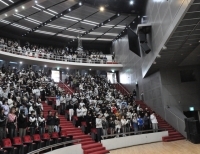 What Happened in KGU? : 수원캠퍼스 학생총회 편
On April 4th, a general meeting of students was held in the Tele-convention center at the Suwon campus. The contents were the same as the general meeting of students in the Seoul campus: the first part was for agenda announcement, the second part was about the Membership Training for whole university, and the third part was simple Q&A time. In the first part, the agendas were all the same as the ones for the Seoul campus, and the result of the ...
What Happened in KGU? : 수원캠퍼스 학생총회 편
On April 4th, a general meeting of students was held in the Tele-convention center at the Suwon campus. The contents were the same as the general meeting of students in the Seoul campus: the first part was for agenda announcement, the second part was about the Membership Training for whole university, and the third part was simple Q&A time. In the first part, the agendas were all the same as the ones for the Seoul campus, and the result of the ...

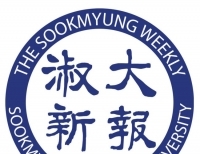 [타 대학보 축사] 경기대신문의 1100호를 진심으로 축하드립니다
[타 대학보 축사] 경기대신문의 1100호를 진심으로 축하드립니다
 [와이파이] 큰 박스에 달랑 물건 하나, 과대포장 규제 정책 시행은 언제쯤
[와이파이] 큰 박스에 달랑 물건 하나, 과대포장 규제 정책 시행은 언제쯤
 [문화산책] 이 세계는 멋져 보이지만 모두 환상이야
[문화산책] 이 세계는 멋져 보이지만 모두 환상이야
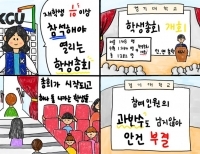 [네컷만화] 학생총회
[네컷만화] 학생총회

 목록
목록






